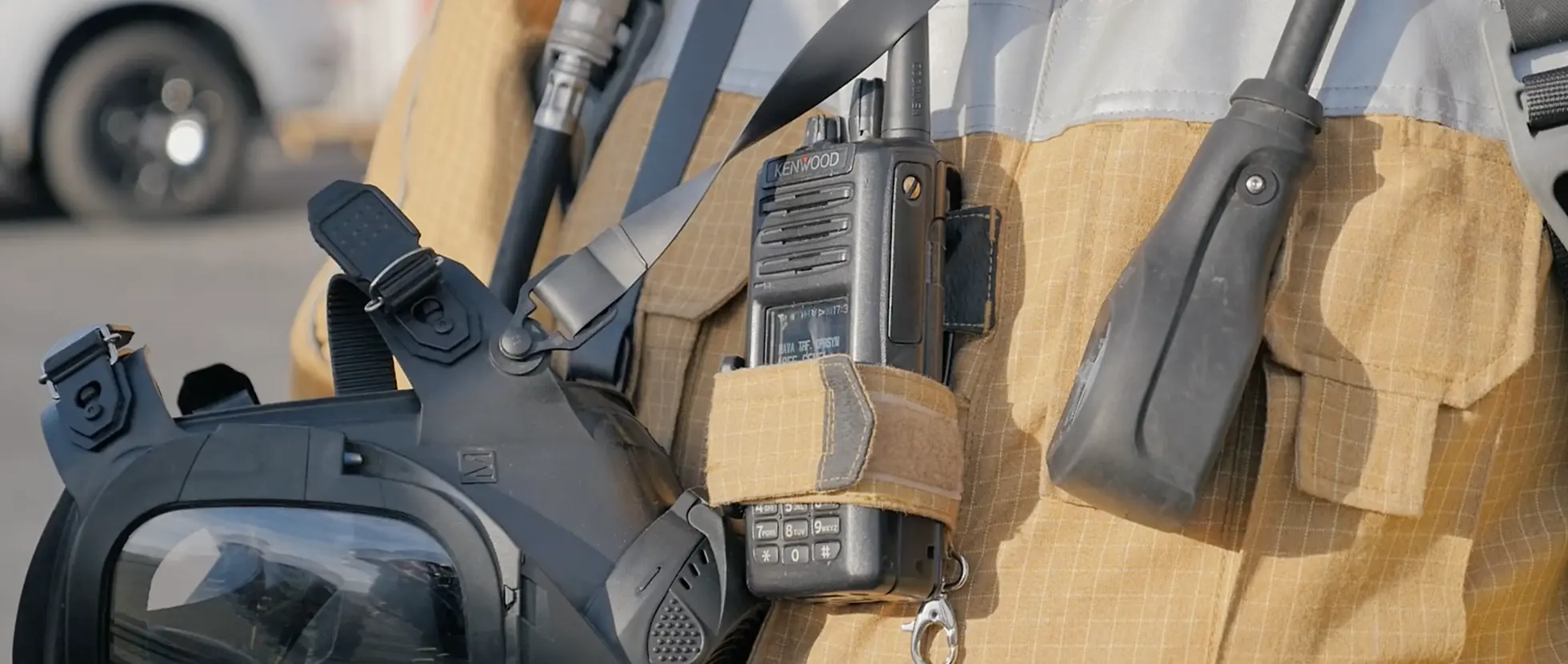Great acoustics both on stage and behind the scenes at the Leipzig Opera with KENWOOD NEXEDGE NXDN

Great acoustics both on stage and behind the scenes

Leipzig’s first opera house, the Opernhaus am Brühl, was officially opened on 8th May 1693, on the initiative of the city’s citizens. This made it the third-oldest civic opera house in Europe after Hamburg and Venice. The Leipzig Opera covers all three branches of opera, ballet and musical comedy with its two venues, the Opera House on Augustusplatz (right-hand photo) and Haus Dreilinden in the Lindenau district. The Gewandhaus Orchestra, one of the world’s leading orchestras, has played at every performance at the Opera House since 1840. The Leipzig Opera is a civic company owned by the City of Leipzig and is one of the city’s major employers, with over 670 members of staff.
Uninterrupted and reliable communication is particularly important

To meet the high standards on stage, the organisation "behind the scenes" also has to function perfectly. The essential prerequisites for a performance also include smooth technical procedures, lighting that fits the situation and great sound - in the truest sense of the word. This is why particular attention is paid to these aspects during rehearsals. It is essential that communication between the technicians in the various areas can be guaranteed during the performances. This is why Leipzig Opera's experts use digital NXDN devices from KENWOOD along with two mobile radio devices ("base stations") in the lighting control room and where the Opera House's machinery is operated. "The area where it is used is mainly communicating within lighting and stage technology as well as in the sound department. This relates to both the rehearsal procedure for deciding the lighting positions from the auditorium, and the arrangements during the performance. How the equipment moves is also coordinated", explains the lighting director Raoul Brosch. During these machine movements, the scenery is moved, crane systems are operated or a trapdoor in the stage floor is opened. "Health and safety is particularly important for us. This is why we rely on uninterrupted and reliable communication," adds R. Brosch. Everyone involved in radio communication wears a headset during the performances and can respond quickly to the commands given by the stage manager.
Great communication thanks to digital technology

The technical departments at the Leipzig Opera have been using radios for in-house communication since 2001 and put their faith in KENWOOD right from the start. Recently, only digital radios from the NXDN family have been used. "Positive experiences with the regional dealer, Funktechnik Dathe, meant that we stayed with KENWOOD. The service is practically around the corner," the lighting director Herr Brosch explains the decision. As well as sales, Funktechnik Dathe's services include consultancy and planning as well as setting up the radio networks. The company also takes care of programming and even assembly work. The portfolio is supplemented by an in-house workshop. As has already been mentioned, digital mobile radio devices have been permanently installed in the lighting control room and where the machinery is operated, because the highest levels of health and safety are required at these locations. The other technicians who move around the building communicate using handheld radios. They are divided into three channels that serve different zones. This means the lighting technicians have their zone with their own frequency and the technicians have two zones with different frequencies, in case radios have to be operated in parallel. Repeaters are not currently in use. However, consideration is being given to using radiating coaxial cables in some locations to ensure communication even in places that are hard to reach - such as in the basement. One of the strengths of digital radio technology is that it filters out disruptive background noise. R. Brosch therefore also worked on the software used by the radios so he could adapt the units to his specific needs and so achieve the best possible quality of communications at the Leipzig Opera House.

| |

Funktechnik Frank Dathe
Gartenstrasse 2 C,
Bad Lausick, 04651
T: 034345 22849
W: www.funktechnik-dathe.de
|
|

JVCKENWOOD Deutschland GmbH
Konrad-Adenauer-Alee 1-11
D-61118 Bad Vilbel
T: +49 (0) 6101 - 4988 - 500
W: www.kenwood.de
|
